Family of Italian journalist detained in Tehran calls for media blackout
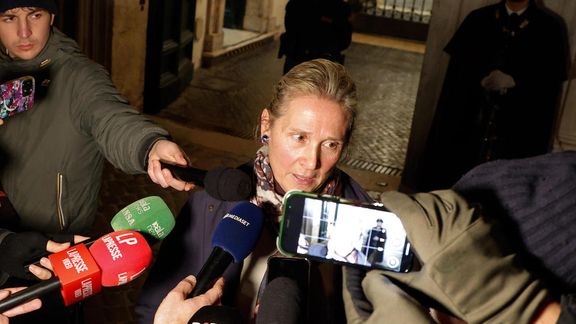
The parents of an Italian journalist detained in Tehran have called on the media to observe a press blackout, citing the delicate nature of efforts to secure her release.

The parents of an Italian journalist detained in Tehran have called on the media to observe a press blackout, citing the delicate nature of efforts to secure her release.
“The situation of our daughter, Cecilia Sala, locked in a Tehran prison for 16 days, is complicated and very worrying," Italian media quoted her parents, Elizabeth Vernoni and Renato Sala, as saying in a statement.
"To try to bring her home, our government has mobilized to the maximum, and now, in addition to the efforts of the Italian authorities, confidentiality and discretion are also necessary.”
They added that the ongoing public debate could hinder progress, saying, “The stage we have reached is, however, very delicate, and the feeling is that the great media debate on what can or should be done risks prolonging the times and making a solution more complicated and distant."
"For this reason, we have decided to abstain from comments and statements and we appeal to the media asking for a press blackout,” they added.
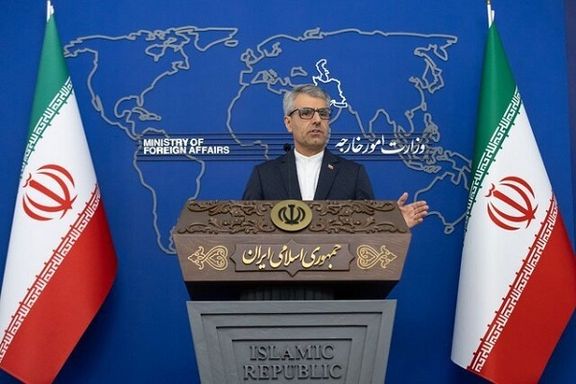
Iran urged Afghanistan to restore the natural flow of rivers along their shared border after Kabul built a second dam on the Harirud River, reducing water supplies to Iran.
"Afghanistan is expected to cooperate in keeping the flow of water and removing the obstacles that have been created," spokesman Esmaeil Baghaei said Thursday.
The Harirud Basin, a water basin shared by Afghanistan, Iran, and Turkmenistan, is now impacted by the construction of the Pashdan Dam on the Harirud River, which could significantly reduce water flow to Iran’s eastern province of Khorasan Razavi where over two million people depend on the river for drinking water.
“The Islamic Republic of Iran has repeatedly mentioned to Afghan parties, through appropriate means, especially through official diplomatic channels and functional (technical) mechanisms, that the use of water resources and basins cannot made without respecting Iran's rights in accordance with bilateral treaties," Baghaei added.
However, officials in Kabul say the Pashdan Dam project is necessary for agriculture. Afghanistan's ministry of energy and water says that alongside the Pashdan Dam, plans are underway for the construction of two additional dams on the Harirud River.
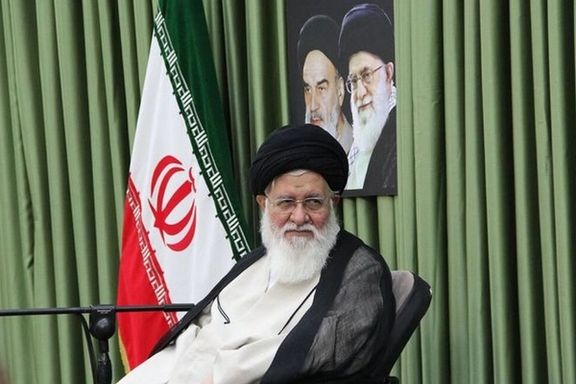
Prominent Iranian cleric Ahmad Alamolhoda warned Friday that relying on negotiations to solve Iran's problems would only encourage Iran's enemies to increase pressure.
"Do not make the mistake of believing the country's problems can be resolved through negotiations. If the enemy senses that its pressure is effective, it will persist and intensify that pressure," Alamolhoda, the Supreme Leader's representative in northeast Khorasan Razavi province, said during Friday's sermon.
His comments come as some Iranian politicians have advocated for direct talks with incoming US President Donald Trump to ease sanctions which have wrought economic crisis.
On Tuesday, one of Iranian President Masoud Pezeshkian's aides called for direct negotiations with Trump, emphasizing the need for a new foreign policy to strengthen international relations.
"We must negotiate with Mr. Trump. The country's issues cannot be left unresolved, and the entire establishment has also reached the conclusion that direct negotiations are necessary," state media quoted Ali Abdolalizadeh as saying.
In a separate interview with Etemad daily, prominent Reformist figure Ali Shakuri-Rad suggested that direct talks with the United States could help curb what he described as the outrageous behavior of Israeli Prime Minister Benjamin Netanyahu.
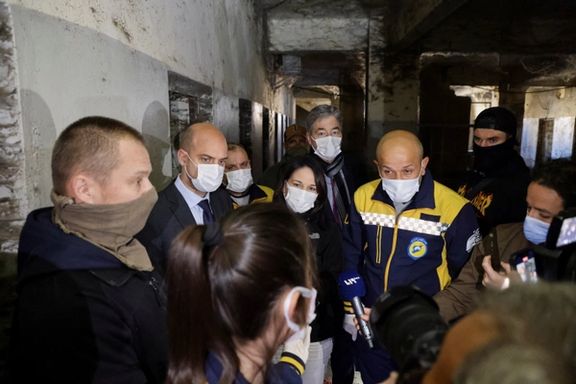
Syria’s Foreign Minister, Asaad Hassan Al-Shibani, told Saudi officials during a visit to Riyadh that the new leadership in Damascus aims to establish a government that includes all segments of Syrian society.
This marks the first foreign trip by a member of Syria’s new administration since the ousting of President Bashar al-Assad in early December.
"Through our visit, we conveyed our national vision of establishing a government based on partnership and efficiency that includes all Syrian components, and working to launch an economic development plan that opens the way for investment, establishes strategic partnerships, and improves living and service conditions," Al-Shibani wrote on X Friday.
Al-Shibani and Syria's defense minister met with Saudi Defense Minister Prince Khalid bin Salman to discuss the country’s future. The new government, led by Islamist rebels under Hayat Tahrir al-Sham (HTS), has sought to reassure regional and international stakeholders of its intent to govern inclusively and avoid exporting Islamist revolution.
Meanwhile, on Friday, the foreign ministers of Germany and France visited Syria to meet with its de facto leader, Ahmed al-Sharaa, signaling the European Union's cautious engagement with the new rulers.
Germany's Annalena Baerbock and France's Jean-Noel Barrot, the first EU ministers to visit since Damascus fell to rebel forces, emphasized the importance of a peaceful transition and inclusivity. The meeting with Sharaa took place in the Damascus People's Palace, but no details of the discussions have been disclosed.
"Our message to Syria's new leadership: respecting the principles agreed with regional actors and ensuring the protection of all civilians and minorities is of the utmost importance," EU foreign policy chief Kaja Kallas wrote on X regarding the visit.
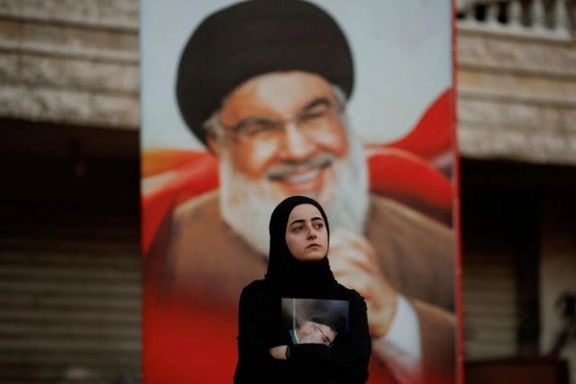
Following reports of an Iranian diplomat refusing to have his bag searched at Beirut Airport, Lebanon’s Foreign Ministry announced later that the funds in his possession were intended for embassy expenses and were eventually cleared for entry.
On January 3, the Lebanese Foreign Ministry stated that it had received an official note from the Iranian Embassy in Beirut and approved the entry of the diplomat’s bags under the Vienna Convention on Diplomatic Relations.
Iranian media also reported that the Iranian Embassy sent a "clarification note" to the Lebanese Foreign Ministry, explaining that the two diplomatic suitcases in question contained "documents and cash for operational expenses of the embassy."
Al-Alam, a news network affiliated with Iran, reported that tensions arose at Beirut Airport when security officials attempted to inspect the bags of an Iranian diplomatic delegation, prompting a standoff.
The network claimed that after the incident, dozens of Shia youths affiliated with Hezbollah on motorcycles headed to the airport, leading the Lebanese Army to block roads to the area.
The incident, the third of its kind since November, follows a series of setbacks for Iran's all Hezbollah in its confrontation with Israel, alongside a decline in its political and military influence in Lebanon. It remains unclear whether Lebanese authorities are genuinely committed to halting the flow of Iranian cash and weapons to Hezbollah or if they are taking high-profile actions to signal to the United States and Israel their intent to curb Tehran's ties with the group.
Ebrahim Rezaei, spokesman for the Iranian parliament's National Security Committee, on Friday urged the Lebanese government to avoid actions influenced by Western countries, warning that the Beirut airport incident is under parliamentary scrutiny.
"The Islamic Republic of Iran has always stood by the Lebanese people and government. We urge the Lebanese government to avoid any questionable actions, particularly under the influence of Western countries, given the region’s sensitive circumstances," Rezaei said.
Beirut Airport security officials had, for the second time in a week, inspected an Iranian plane and the belongings of all passengers on Thursday, January 2. Lebanese authorities had warned that any cash found on planes would be confiscated by the government.
According to reports, Lebanese officials informed Iranian representatives that any suspicious shipments arriving in Lebanon in the future would be seized.
The Al-Hadath network, citing Western sources on Thursday, claimed that Iran was attempting to transfer millions of dollars to Hezbollah through Mahan Air flights from Tehran to Beirut.
Hezbollah’s Deputy Secretary-General, Naim Qassem, previously stated in December that $50 million had been distributed to 233,500 registered displaced Lebanese households. He noted that if aid were extended to the entire population, the total would reach $77 million, adding that the funds had been provided by Iran.
According to Qassem, Lebanese families whose homes were completely destroyed received $14,000 for furniture and a year’s rent if they resided in Beirut or southern suburbs, and $12,000 if they lived outside the city.
Reports of cash transfers to Iran’s proxy groups have surfaced in the past. For example, in 2006, Mahmoud al-Zahar, a senior Hamas official, revealed on Al-Alam TV that during a visit to Tehran, he received several suitcases containing $22 million from Qassem Soleimani, the late commander of the IRGC’s Quds Force.
In 2019, China’s Xinhua News Agency reported that during an event preceding "Quds Day" in Gaza, Iran distributed $651,000 to Palestinian families in the territory.
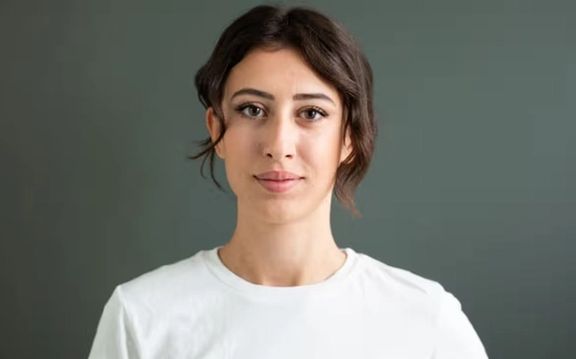
Tehran made clear to Rome that the freedom of an Italian reporter detained in Iran depends on Italy's release of an Iranian arrested at Washington's behest, a source familiar with discussions between the journalist's family and the Italian government told Iran International.
Iran's demand has not been previously reported and had been left unsaid by senior Italian officials, including the prime minister, eager for a swift end to the crisis.
Newspaper journalist and podcaster Cecilia Sala, 29, was arrested on unspecified charges last month and placed in solitary confinement despite working in the country on a valid press pass.
Mohammad Abedini Najafabadi, 38, was arrested by Italian authorities at the behest of the United States for his alleged role in providing technology used to kill three US soldiers in a drone attack in Jordan.
Speaking to Iran International on condition of anonymity, a source familiar with discussions between the Italian government and Sala's family said Iran conveyed its terms for her release to Italy’s ambassador in Tehran.
Iran, the source said, is prepared to free Sala “on humanitarian grounds" if the Italian government drops the extradition proceedings against Abedini and grants his release from Milan's brooding La Opera prison.
On Friday, Sala's parents issued an statement calling on the media to observe a press blackout, citing the delicate nature of efforts to secure her release.
"To try to bring her home, our government has mobilized to the maximum, and now, in addition to the efforts of the Italian authorities, confidentiality and discretion are also necessary,” Italian media quoted her parents, Elizabeth Vernoni and Renato Sala, as saying in a statement.
“The stage we have reached is, however, very delicate, and the feeling is that the great media debate on what can or should be done risks prolonging the times and making a solution more complicated and distant," they added.
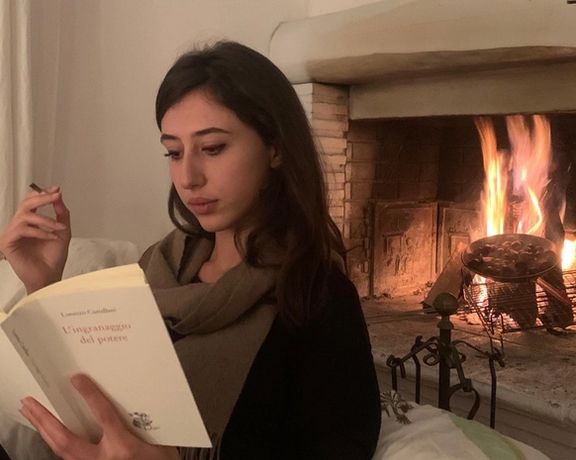
The Italian foreign ministry has demand Sala's “immediate release ... (and) full assurances regarding her conditions of detention.”
Sala told her family in New Year’s Day calls that her prescription glasses had been confiscated, her cell is barely longer than her own height and that she is forced to sleep on a blanket spread on the floor, according to Italian media.
A package of basic necessities, she added, including a sleeping mask, cigarettes, a book and a sweater—assembled by the Italian embassy was never delivered to her, despite Iranian officials having told Italian diplomats she would receive it.
Her food, mainly dates, is passed to her through a slot in the cell door and therefor she rarely sees her jailers, she reportedly added.
Accusation withheld
On December 30—11 days after Sala’s detention—Iran’s Ministry of Culture and Islamic Guidance issued a statement confirming Sala had been arrested ten days earlier for “violating the laws of the Islamic Republic of Iran”.
Italian authorities believe the absence of any formal charges against Sala, the source told Iran International, while highlighting the arbitrary nature of her detention, could also mean Iranian officials are deliberately withholding an official accusation.
This would allow them to either release her easily if Italy cooperates on Abedini’s case, otherwise the ambiguity could empower Tehran to charge Sala with more serious offenses and impose a heavy sentence in retaliation.
At the same time, the Italian Embassy in Tehran has announced that Iran’s foreign ministry provided a list of Iranian lawyers to Paola Amadei, Italy’s ambassador, so Sala’s defense counsel can be chosen from among them.
The move belatedly grants her case the appearance of a genuine legal proceeding on par with Abedini’s in Italy.
“Complex" case
On December 20, three days after Abedini was arrested at Milan Airport, he opposed his extradition in his first court appearance. The judge issued a temporary detention order, starting a legal process that could take up to two months.
That same day at around 12:30 PM—less than an hour after the Milan court hearing ended and Abedini’s detention order was issued—Sala was arrested in Tehran.
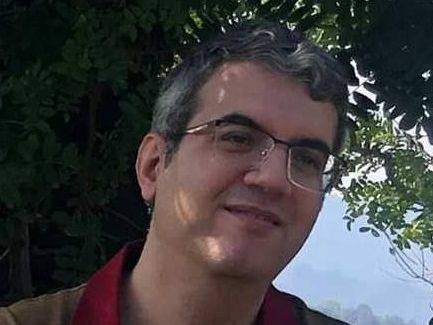
Given that Sala’s presence in Iran was lawful and that the Ministry of Culture was aware of her itinerary, the timing was the first clear indication the cases are linked.
Italian authorities’ official statements, however, were careful not to do so.
After a week of silence about Sala’s detention—the news of which was kept from the media and public—Italian government officials have dwelled only generally on the complexity and sensitivity of her case.
“This case is complex, but we are using all possible channels of dialogue to obtain Sala’s freedom,” Italian Prime Minister Giorgia Melon said, emphasizing her government’s tireless efforts to secure Sala’s swift release.
Italian Foreign Minister Antonio Tajani too shied away from mooting an Iranian demand for a swap, saying, “We are working to resolve this complicated matter and ensuring that Cecilia Sala is held under the best possible conditions.”
The third party in this legal and diplomatic triangle—the United States, Italy’s close ally and a longtime adversary of the Islamic Republic—took a more explicit stance.
“Cecilia Sala’s detention in Tehran occurred after an Iranian national accused of smuggling drone parts was arrested in Italy," a US State Department spokesperson told La Repubblica newspaper.
"We reiterate our call for the immediate, unconditional release of all individuals who are arbitrarily and unjustly detained in Iran and are being used as political leverage.”
Referring to mounting public pressure for Sala's release, the source told Iran International that Italian officials assured her family they are working without stint.
“They have not explicitly stated they will agree to a swap demanded by Iran,” the source said, “but they have made it clear that all options are under consideration and that they will bring Sala home.”
Italy denies house arrest
While the Italian government still believes that any public political stance or diplomatic standoff with the Islamic Republic might worsen an already difficult negotiation, the country’s judiciary appears unlikely to show leniency.
Tehran may have viewed acceptance of Abedini’s lawyer’s request for a transfer to house arrest as a sign of goodwill from Italy.
The United States Justice Department strongly opposed any form of house arrest in a letter to the Court of Appeal in Milan.
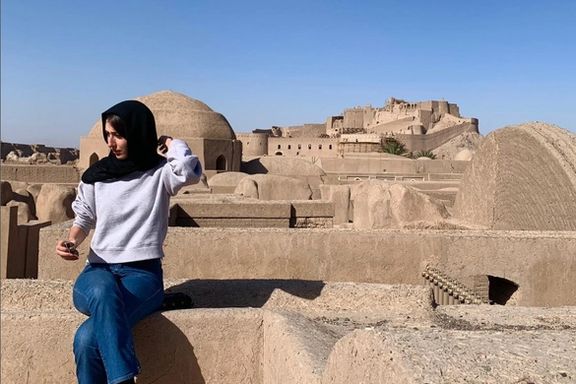
Milan’s chief prosecutor, Francesca Nanni, told the court on Thursday she opposed placing Abedini under house arrest or granting him conditional release, citing inadequate assurances from the Iranian consulate that he would not attempt to flee.
The prosecutor’s recommendations are non-binding and the judges will make their decision in a hearing whose date is due to be announced on Friday.
A notorious precedent is the case of Artem Uss, a Russian businessman and son of a Russian oligarch,who fled Italy in 2023 after being placed under house arrest—despite a US extradition requests—causing a public scandal for the Italian judiciary.
Political options
Italian law allows its justice minister to intervene and halt an extradition and order the release and expulsion of a detainee.
But such a move would be politically sensitive, given that the Milan prosecutor’s office is currently acting on behalf of the justice ministry by insisting on Abedini’s continued detention, and Washington accuses him of abetting terrorist enemies.
Yet if this remains the only route to free Cecilia Sala—given the Islamic Republic’s record of exchanging detained foreign nationals for prisoners and political or economic concessions—Rome could plausibly concede.
The gravity of the matter has prompted Prime Minister Giorgia Meloni and her deputy, Alfredo Mantovano—who oversees the nation’s intelligence agencies—to lead the behind-the-scenes efforts to secure Sala’s freedom.
Sala’s family is unmoved by officialdom's tactful negotiations so far, the source told Iran International. They have made it clear in meetings with government officials that they will accept no justification for Sala remaining behind bars.